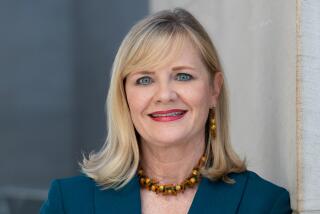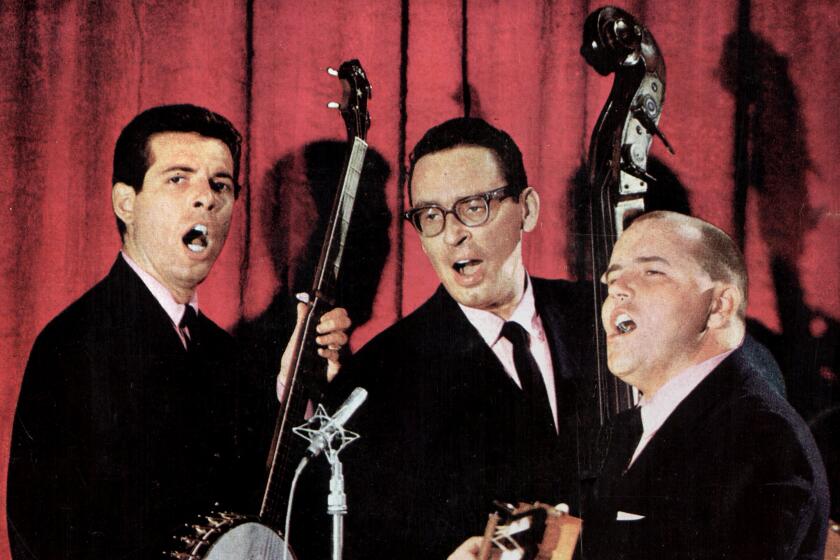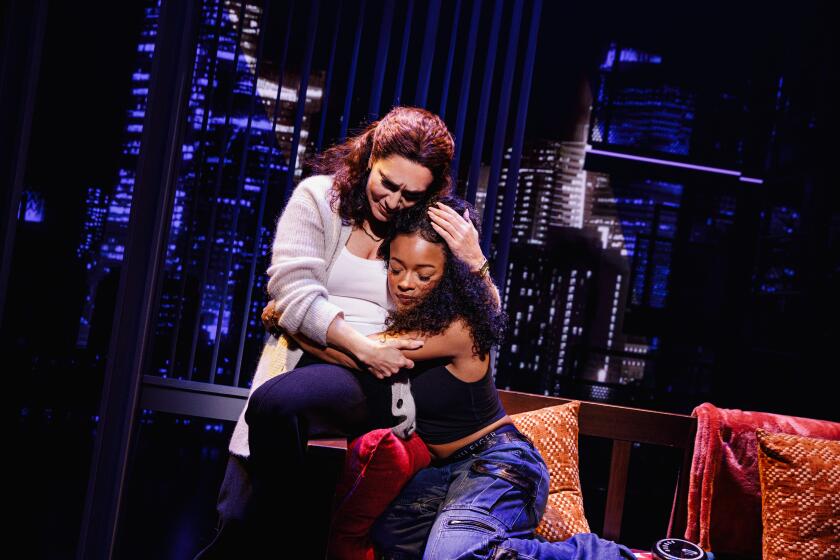Like a harmonic convergence
While Osvaldo Golijov’s “Ayre,” at Walt Disney Concert Hall on Friday, was trying to find common ground among the Christian, Jewish and Islamic peoples, something amazingly similar in intent was going on at UCLA’s Royce Hall that same night.
Here, the irrepressibly versatile six-man group the King’s Singers joined forces with the enterprising five-man early-music ensemble Sarband, interpreting a series of psalms according to 16th- and 17th-century composers from all three religions.
It was a scheduling coincidence, we think -- or was there some unconscious, deeper spiritual connection being forged across town?
Basically, the musicians performed their new joint album “Sacred Bridges” (World Village) -- a continuous suite that juxtaposes psalm settings by Christian composers Jan Pieterszoon Sweelinck and Claude Goudimal, Jewish composer Salamone Rossi Hebreo and Polish musician Ali Ufki, a convert to Islam. The King’s Singers handled the Sweelinck and Rossi psalms by themselves, a cappella, while Sarband improvised upon the Ufki/Goudimal material, with one all-instrumental interlude. Occasionally the King’s Singers would join Sarband in Ufki/Goudimal, trading off with Sarband’s vocalist Mustafa Dogan Dikmen.
On CD, “Sacred Bridges” slowly unfolds in relatively smooth and muted form, almost to the point of monotony. Live, though, the diverse colors stood out in bolder relief, and the whole conception became clearer and more involving. Fusing the two groups remains an awkward task -- their rhythmic instincts are starkly different -- but the experience of performing together is starting to generate something resembling a common groove.
In Royce’s detailed acoustics, the King’s Singers’ voices acquired some appealing grain and grit to temper the sweetness a bit, and they sailed into Sweelinck’s and Rossi’s polyphony with more gusto and energy. Sarband’s improvisations for the most part remained gentle and restrained, their instruments -- a ney (reed flute), a kemance (a tiny three-stringed violin held like a cello), a kanun (small zither) and a bendir (hand-held drum) -- producing spare, concentrated drone-based processions.
As a bonus visual attraction, a pair of white-clad whirling dervishes enlivened a couple of the suite’s sections with their circular activities.
(How do they keep from getting dizzy?)
More to Read
The biggest entertainment stories
Get our big stories about Hollywood, film, television, music, arts, culture and more right in your inbox as soon as they publish.
You may occasionally receive promotional content from the Los Angeles Times.






